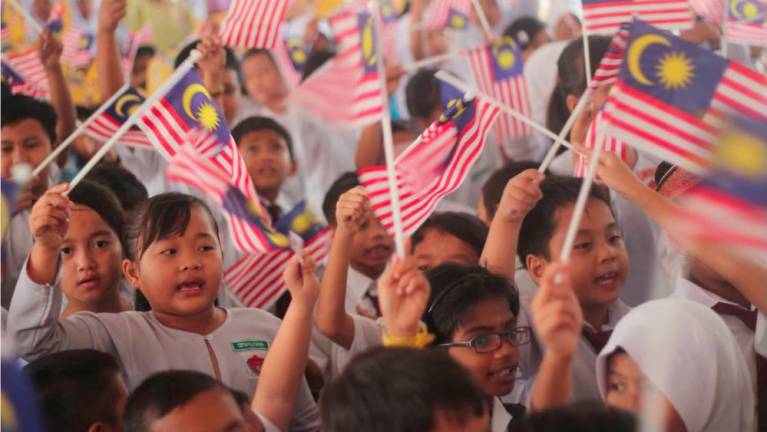KUCHING: One may not have to travel far to understand unity in Malaysia.
A trip and a short stay in Sarawak should suffice to prove that all those racial issues being bandied about by certain quarters, especially on social media, are wrong.
The various ethnic groups in Sarawak are more appreciative of the peace and harmony they are enjoying today because they know very well how bad things were before.
History proved that these ethnic groups had gone to extremes to win their fight against each other. The Ibans and the Bidayuhs had even decapitated their foes in a fight over a territory.
“But that is all in the past,” said Peggy Mina, 67, of the Bidayuh ethnicity, when met at the longhouse in Kampung Annah Rais, Puncak Borneo, near here, which is among the earliest settlements of Bidayuh that had existed over 300 years. The decapitated skulls of their foes are still hanging in the longhouse today for tourists to see.
“That was before. No such things happen now. We are all Sarawakians now, we take care of each other, not just between the Ibans and the Bidayuhs, but also among the other ethnic groups in Sarawak.
“And on every festive season, be it Gawai, Deepavali, Hari Raya, Chinese New Year, we’ll pay each other a visit. No difference. Just put politics aside, we are all human,” she said.
The spirit of unity in the state is also shared by a Briton, Roy Barnett, 73, who chose to reside in the village for 14 years now.
“I worked in Brunei from 1984 to 1970s before moving to Limbang where I met my wife. She is actually from this village (Kampung Annah Rais). For me, Sarawak is a very peaceful, very quite place, nothing like London where I used to live. There were too many people. Everybody, everywhere, minding their own business, I just wanted to get away from it.
“Here, there is no fight between people, it’s best where it should be, people just get along with each other, there is no argument,” he said.
This is evident from the daily situation in any restaurant and food outlet in the state.
To see people from different ethnic groups sharing a table and enjoying their meals together is actually no big deal.
In fact, for a restaurant owner here, Lachu Topandasani, who has been residing in Sarawak for 10 years under the Sarawak-Malaysia My Second Home programme, there had been no problem for any traders to run their business in the same premises.
The Indonesian national who moved to Indonesia from Hyderabad, India, in 1949, with his parents before staying in Sarawak, said he had never been treated unfairly or faced a double standard here even though he is an Indian and a non-Bumiputera.
“We’re like friends, like brothers, no difference. I have travelled the world, but there is no place like here. Sarawak, especially Kuching, it is the best city in the world because the people are more relaxed, happy and they don’t fight,” he said.
Though, there were only few comments from several peoples and this might not represent the whole image of Sarawak, but suffice to say this was the state where a number of politicians and academicians described as ‘University of Unity’ and the best example of unity.
State National Unity Department deputy director Esther Dingkawan said it has been Sarawak’s pride to be a state with 76 ethnic groups, with each having their own rich history, but still living peacefully.
“After more than 60 years of independence, to still talk about unity is uncalled for, but if it has to be, Sarawak has a lot to offer in that subject,” she said.
A sociopolitics analyst from Universiti Malaya, Prof Dr Awang Azman Awang Pawi said what enhanced the level of racial tolerance among the ethnic groups in Sarawak was their mutual respect and the emphasis given by their political parties to development for all.
“There is a high level of awareness that one ethnic group cannot rule the state with multiple ethnic groups. But there seems to be foreign political elements trying to shake that inter-ethnic harmony in Sarawak.
“May the people of various ethnicities in Sarawak remain consistent and unaffected by those unhealthy elements,” said the Sarawak-born professor. — Bernama














